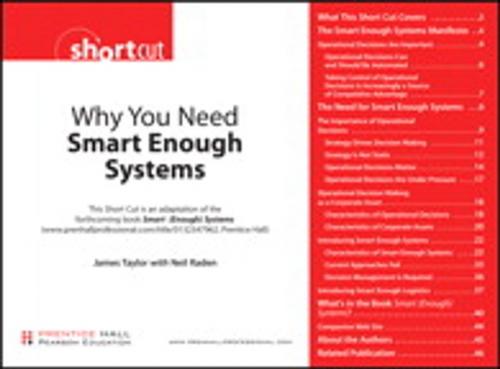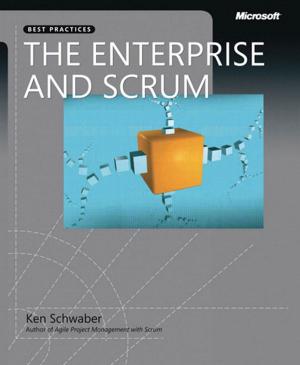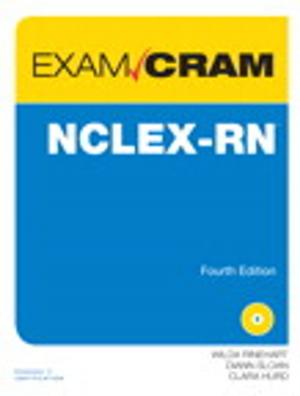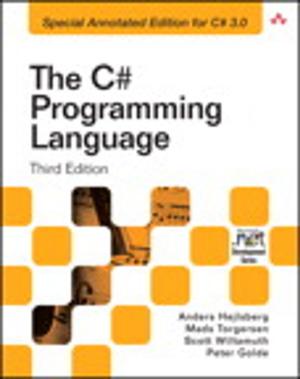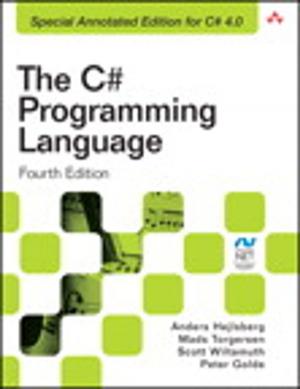Why You Need Smart Enough Systems (Digital Short Cut)
Business & Finance, Industries & Professions, Information Management, Nonfiction, Computers, Database Management| Author: | James Taylor, Neil Raden | ISBN: | 9780132713115 |
| Publisher: | Pearson Education | Publication: | May 29, 2007 |
| Imprint: | Prentice Hall | Language: | English |
| Author: | James Taylor, Neil Raden |
| ISBN: | 9780132713115 |
| Publisher: | Pearson Education |
| Publication: | May 29, 2007 |
| Imprint: | Prentice Hall |
| Language: | English |
This is the eBook version of the printed book.
It is commonly believed that the computer-based systems most organizations rely on to support their businesses are not very smart. Many of the business decisions these companies make tend to be hidden in systems that make poor decisions, or don't make them at all. Further, most systems aren't configured to learn from the past and therefore struggle to keep up with the pace of change. While many organizations believe the answer is to implement newer, "intelligent" systems, the fact is that much of today's existing technology has the potential to be "smart enough" to make a big difference to an organization's business.
This digital Short Cut lays out a cry for systems that are smart enough to help companies survive and thrive in the world as it is today. Showing how the neglect of operational decisions prevents effective implementation of strategy and describing the characteristics of effective operational decision-making, the Short Cut establishes the role of operational decisions. The characteristics of the smart enough systems modern business needs are explained, and the absolute requirement for a new approach is outlined.
This Short Cut is a reproduction of the “Smart Enough Systems Manifesto” and “Why You Need Smart Enough Systems” chapters from the book.
This Short Cut should be of interest to software and business professionals. In particular, it will be of value to those managing information systems and application development projects in defining the goals they should have in building better systems, and to business owners who are frustrated by their current systems but cannot articulate how or why to change things.
Contents
The “Smart Enough Systems” Manifesto
Operational Decisions Are Important
Operational Decisions Can and Should Be Automated
Taking Control of Decisions is Increasingly a Source of Competitive Advantage
The Need for Smart Enough Systems
The Importance of Operational Decisions
Strategy Drives Decision-making
Strategy Is Not Static
Operational Decisions Matter
Operational Decisions Are Under Pressure
Operational Decision-Making as a Corporate Asset
Characteristics of Operational Decisions
Characteristics of Corporate Assets
Introducing Smart Enough Systems
Characteristics of Smart Enough Systems
Current Approaches Fail
Decision Management Is Required
Introducing Smart Enough Logistics
This is the eBook version of the printed book.
It is commonly believed that the computer-based systems most organizations rely on to support their businesses are not very smart. Many of the business decisions these companies make tend to be hidden in systems that make poor decisions, or don't make them at all. Further, most systems aren't configured to learn from the past and therefore struggle to keep up with the pace of change. While many organizations believe the answer is to implement newer, "intelligent" systems, the fact is that much of today's existing technology has the potential to be "smart enough" to make a big difference to an organization's business.
This digital Short Cut lays out a cry for systems that are smart enough to help companies survive and thrive in the world as it is today. Showing how the neglect of operational decisions prevents effective implementation of strategy and describing the characteristics of effective operational decision-making, the Short Cut establishes the role of operational decisions. The characteristics of the smart enough systems modern business needs are explained, and the absolute requirement for a new approach is outlined.
This Short Cut is a reproduction of the “Smart Enough Systems Manifesto” and “Why You Need Smart Enough Systems” chapters from the book.
This Short Cut should be of interest to software and business professionals. In particular, it will be of value to those managing information systems and application development projects in defining the goals they should have in building better systems, and to business owners who are frustrated by their current systems but cannot articulate how or why to change things.
Contents
The “Smart Enough Systems” Manifesto
Operational Decisions Are Important
Operational Decisions Can and Should Be Automated
Taking Control of Decisions is Increasingly a Source of Competitive Advantage
The Need for Smart Enough Systems
The Importance of Operational Decisions
Strategy Drives Decision-making
Strategy Is Not Static
Operational Decisions Matter
Operational Decisions Are Under Pressure
Operational Decision-Making as a Corporate Asset
Characteristics of Operational Decisions
Characteristics of Corporate Assets
Introducing Smart Enough Systems
Characteristics of Smart Enough Systems
Current Approaches Fail
Decision Management Is Required
Introducing Smart Enough Logistics
